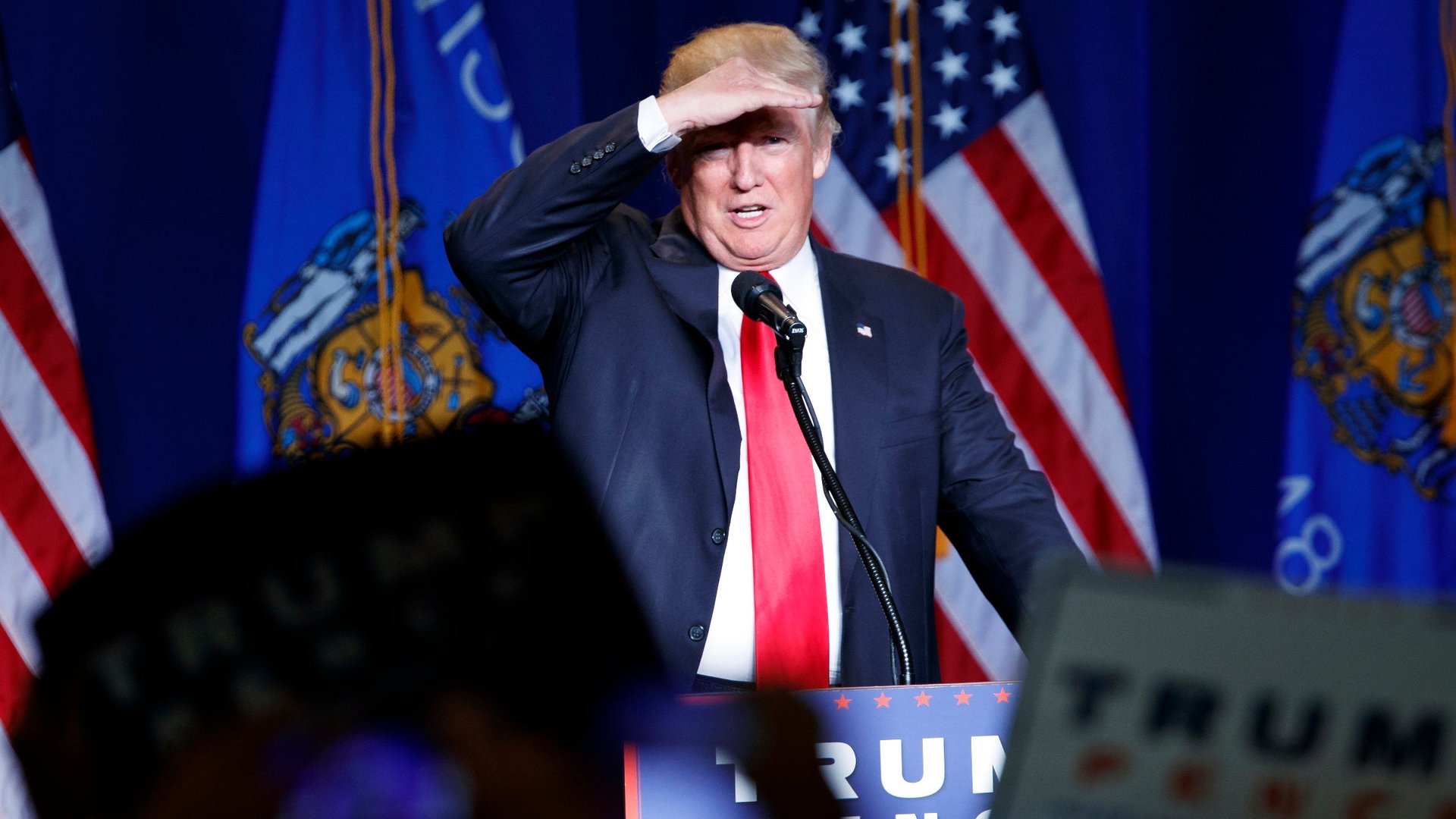Donald Trump’s speech today is playing to wealthy donors, not Detroit workers
You’ve heard it a million times: Voters are anxious about their economic circumstances, and they’re turning to Donald Trump.


You’ve heard it a million times: Voters are anxious about their economic circumstances, and they’re turning to Donald Trump.
It’s a compelling narrative, but it’s not at all clear that it’s true; public opinion surveys show low-income Americans lining up behind Hillary Clinton.
Today, Trump will deliver a speech in Detroit designed to tar the Democrats with the shrinking city’s economic plight, but we expect little mention will be made of the 2008 auto industry bailout. However, it’s fairly obvious that his campaign staff wrote the speech because it was leaked in advance, just as his convention address was—and the intended audience is obvious, too.
So what are Trump’s major solutions for Detroit’s struggling citizens? Per Bloomberg news, Trump will emphasize a freeze on new rules for banks and a repeal of the inheritance tax on estates larger than $5.45 million. The relief washing over the unemployed, er, bankers, must be palpable.
Trump’s campaign—now trailing by seven percentage points in polling averages—is desperate to get people talking about anything other than his attacks on the family of a US veteran who died in Iraq.
It’s also desperate for big-dollar fundraising from the wealthy so his campaign can compete with Clinton’s, which is reflected in his decision to appoint his billionaire backers as economic advisers, his scramble to bring wealthy donors back to the table, and now today’s speech touting the interests of the financial class.
To be sure, Ivanka must have gotten her hands on a draft, because Trump will also propose making child-care expenses tax deductible. And he is expected to maintain his opposition to the Trans-Pacific Partnership, which should play well in auto country, where unions and companies alike feel the deal isn’t tough enough on their Asian competitors.
But cancelled trade deals won’t bring back the low-skill jobs that left the US rust belt. And Trump is expected to propose corporate tax reforms, including a 15% corporate tax rate and new protections for intellectual property, that together with his his plan for tax cuts on big earners, would shift even more of the tax burden on to the middle class.
Trump’s talk of regulatory burdens will no doubt sit well with trade organizations and small-business owners, both of which are already staunchly in the Republican camp. But make no mistake: This is a speech from someone still trying to unite his party and win over deep-pocketed backers, not someone trying to expand his coalition for the general election.